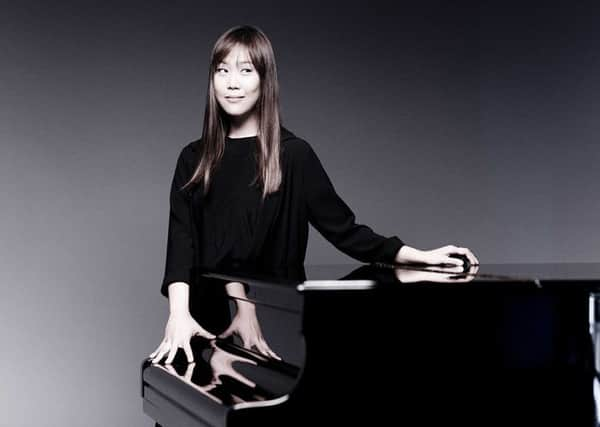2020: The Year Ahead in Classical Music, by David Kettle


It has to be said, however, that Scotland’s contributions are – well, a little underwhelming. It’s hard to believe, for example, that we really need three cycles of Beethoven’s symphonies (well, nearly three – one is incomplete). Few would deny that the symphonies form one of the commanding, defining achievements in Western art music – but might we have hoped for something a little more unusual, a little more challenging? Cavils aside, though, the three series have a lot going for them. The Scottish Chamber Orchestra’s multi-conductor cycle began back in November, and continues with the Pastoral Symphony and No 7 in March under galvanising new principal conductor Maxim Emelyanychev, then Nos 8 and 9 under Emmanuel Krivine in May. And there are two supporting concerts in February led by much-admired keyboardist Kristian Bezuidenhout featuring the Triple Concerto and an early piano trio.
The Royal Scottish National Orchestra offers a partial cycle, with symphonies 1, 3, 4 and 7 spread over four concerts from February to May, and also casts its net more widely in terms of repertoire. Steven Osborne plays Beethoven’s last three piano sonatas in March, then the exquisite Fourth Piano Concerto in April; Turkish piano sensation Fazil Say performs the Emperor Concerto in March; and there are two Beethoven-focused chamber recitals in April and May.
Advertisement
Hide AdAdvertisement
Hide AdThe BBC Scottish Symphony Orchestra holds off on its own Beethoven celebrations until May, but then it really goes for it, in what’s probably the most intriguing and most ambitious offering across the three orchestras. Chief Conductor Thomas Dausgaard has directed Composer Roots concerts for the last couple of seasons, exploring the rarely heard music – classical, folk or otherwise – happening around various composers’ masterworks. In 2020, Beethoven’s symphonies get the same treatment, in concerts that promise some illuminating perspectives on these iconic pieces, while also offering rare opportunities to hear music live in the concert hall that’s often only given passing mentions in music textbooks. The Pastoral Symphony, for example, gets heard alongside Knecht’s Portrait musicale de la nature (just one of the musical hymns to nature in vogue at the time), and the Choral Symphony is prefaced by two uncompromising anthems of revolutionary France – Cherubini’s Hymne du Panthéon and Méhul’s Chant du départ. The SSO also bookends its symphonies with a piano recital by Louis Lortie, a chamber concert from the SCO Winds and Beethoven violin sonatas from James Ehnes.
Finally, looking ahead to the summer, Fife’s East Neuk Festival focuses on the sheer range and diversity of Beethoven’s music, with musical monuments including the Hammerklavier Sonata from Llŷr Williams, the Grosse Fuge Quartet (Op. 130) from the Calidore Quartet, and the Diabelli Variations from ace South Korean pianist Yeol Eum Son.
But there’s more to 2020 than Beethoven – well, just about. The Scottish Ensemble rounds off what’s been a thrilling and typically eclectic 50th anniversary season with some typically eclectic collaborations. First up is a partnership with Stewart Laing’s Untitled Projects theatre company and Icelandic composer Valgeir Sigurðsson on We are in Time, the musical/theatrical story of a transplanted heart (February and March). Then the SE works with the Dunedin Consort on Sir James MacMillan’s powerful Seven Last Words from the Cross (March), and closes its season with a series of midsummer musical and culinary feasts in collaboration with homelessness enterprise Social Bite. The SE also takes part in The Bridge, a new Glasgow festival of music for strings in May. Details are still being finalised, but in bringing together ensembles from Scotland, Germany, Norway and Estonia, and with new commissions from Estonian Erkki-Sven Tüür and Brit Mica Levi, it’s an intriguing new event.
And talking of the theatrical and the eclectic, let’s not ignore Scottish Opera’s spring and summer productions – Adams’s Nixon in China (February), Britten’s A Midsummer Night’s Dream (March and April), and Gilbert & Sullivan’s The Gondoliers (May to July) – which encapsulate both those values pretty well. See – you really don’t need to like Beethoven to enjoy 2020’s classical music.